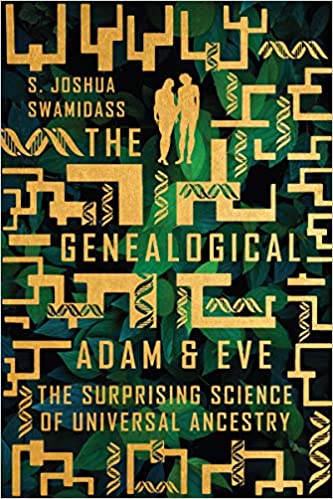Q. One of things you do not discuss in your book is the fact that the vast majority of the Bible is not about all human beings and all of history for that matter, it is about the origins of God’s people and their history including salvation history. People such as the Philistines or Hittites of the OT or in the NT the Greeks or Romans only come into the picture insofar as they come into contact with God’s people. Obviously, the scope of intentional contact with people who are not people of the Biblical tradition becomes more direct as a result of the Great Commission and evangelism in the NT era. Then a universalism by inclusion of more and more people groups into the people of God becomes part of the raison d’etre of being God’s people. And yes, there is a universalism in Gen. 1 in regard to the Biblical God being the creator of everything and everyone, whatever means he uses. I wondered why you didn’t stress more that the Bible tells a particular human story about a particular group of people. It is not the story of everyone for the most part.
A. Hmm…I thought I did stress that Genesis tells a particular human story about a particular group of people. On one level, this is just how all stories work. Most of Scripture is narrative, stories. Good stories don’t bog us down with too many details. They are efficient, drawing our attention to key aspects of the characters, setting, and backstory. We do not expect them to tell us everything. It would be silly, for example, to watch a movie set in the Wild West, and conclude that the writer rejects the existence of people living in China. Even though China is never mentioned, that silence tells us nothing about whether there are people living there, or even what the author things of these things. Instead, China is not mentioned because it is not relevant to the story and its setting. It is silly to reason about a John Wayne movie this way. It is also silly to reason about Scriptural narratives in this way too.
It should be no surprise that those strong claims of universality are difficult to derive from Genesis alone. The particularity of Genesis, however, is in tension with the universality of the full Scripture The New Testament claims of universality cannot be ignored. For example, much is made of Romans 5:12-14, which seems to implicate universal descent from Adam and Eve in Paul’s teaching. Let’s set aside commitment to some of the more narrow definitions of original sin. It is just mere Christianity to hold that somehow Adam’s sin comes to affect us all. Certainly, that is how Augustine read Romans, the Council of Orange, and several Church traditions.
Less discussed, but just as important, is Jesus’s commission to the early Church to take the Gospel to the “ends of the Earth” in Acts 1:8. In his glorified state, Jesus surely knew that the Earth was a globe, with antipodeans living on the other side. Whatever the Gospel is doing for us, it is intended for people that the Church would know nothing of till the “discovery” of the Americas. So, the tension between Genesis and the New Testament is valuable. It forces us work through a scandalous particularity. Somehow, the God of the whole universe is making himself known in one corner of the Earth. That’s true of both the Garden and the Empty Tomb. This message in one cultural setting, truly foreign to all of us now, is meant for all of us in all cultures.
I resolve this tension with attention to the temporal cues. It seems that the teaching of Scripture is that Adam and Eve become ancestors of all of us. In Genesis, they are not universal ancestors. By the time Paul writes Romans, however, they are ancestors of us all.












